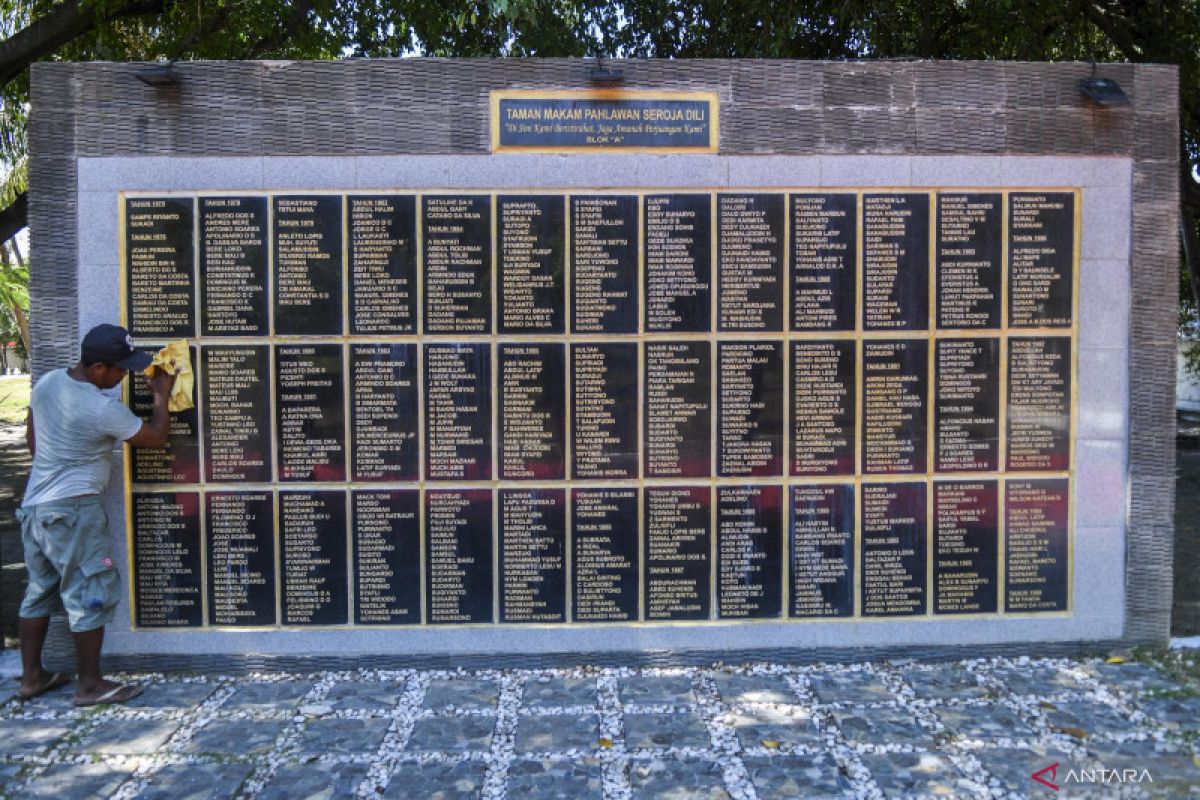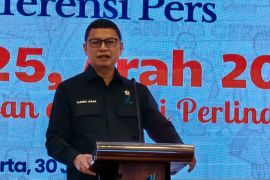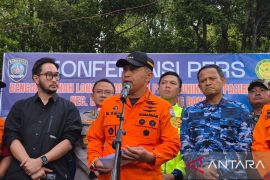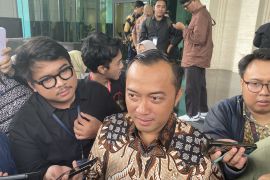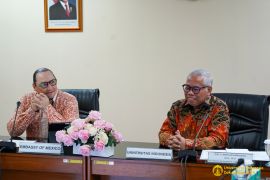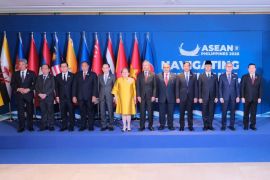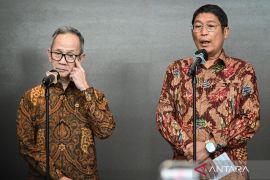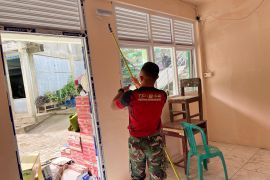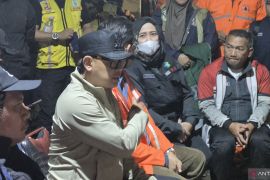Every drop of blood shed in the Motherland will never be forgotten; it will be remembered under the red-and-white bannerDili, Timor Leste (ANTARA) - “Every drop of blood shed in the Motherland will never be forgotten; it will be remembered under the red-and-white banner.”
That statement embodies the spirit that the Embassy of the Republic of Indonesia in Timor Leste strives to build at the Seroja Heroes Cemetery in Dili and Seroja Heroes Cemetery in Baucau by renovating and relocating the cemeteries.
It is undeniable that Indonesia and Timor Leste had a turbulent and blood-stained history, and the heroes' cemeteries are its silent witnesses.
Ambassador of Indonesia to Timor Leste, Okto Dorinus Manik, said that the Seroja Heroes Cemeteries in Timor Leste are the only Indonesian heroes cemetery outside the Indonesian territory. Some Timorese are also interred in the heroes' cemetery.
As those who are interred in the Seroja Heroes Cemeteries are fighters, who have defended the unity of Indonesia during the Timorese integration in Indonesia, the Indonesian government has committed to preserving the heroes' cemeteries.
Renovation of cemeteries
Secretary of the Ambassador and coordinator of Indonesia’s Heroes Cemeteries staff in Timor Leste, Eko Brotto Sutaryo, said that in his early days of being transferred to Timor Leste in 2010, the condition of the heroes cemetery in Dili was abysmal.
Of the 697 total graves at the Seroja Heroes Cemetery in Dili, the officers were only successful in identifying 243 individuals interred in the cemetery. Other graves were unidentifiable because their tombstones have been lost or unreadable due to age.
To preserve the cemetery and respect the late fighters, the Embassy decided to conduct a major refurbishment of the heroes' cemetery.
During the renovation, the uneven and hilly conditions of the grave lands were flattened, tombs were reordered, and tombstones were repainted. Other facilities at the heroes' cemetery were also renovated to improve their condition.
Speaking in connection with the graves of unidentifiable individuals, Sutaryo admitted to feeling hesitant to engrave the names in individual graves despite having the record of individuals buried at the heroes' cemetery.
The Embassy then constructed a statue to inscribe all names of individuals interred at the heroes' cemetery. Hence, individuals, who could not be identified by their graves, can still be known and remembered by those who paid a visit there, he stated.
The Embassy has currently hired three staff members to help manage the Seroja Heroes Cemetery in Dili, the secretary noted, adding that they will work from 8 a.m. to 5 p.m. local time (UTC +9).
He expressed optimism that proper staffing at the cemetery would keep it clean and preserved, so as to prevent neglect and failure to identify individual graves in the future.
Relocation of tombs
Apart from improving the cemetery site, the Embassy has also planned to centralize Indonesian heroes' cemeteries in Timor Leste only in two areas -- Dili and Baucau – where the Indonesian heroes’ cemetery there is named Kailara Heroes Cemetery.
By relocating tombs and centralizing burial at only two locations, the Embassy could optimize the budget allocated by the Ministry of Social Affairs for the cemetery's maintenance.
The cemetery reorganization plan has been conceived by Indonesia since 2008, though only started in 2019 after the Timorese authority gave the green light for the process.
Recently, a total of 99 tombs were relocated from the Seroja Liquica Heroes Cemetery and Seroja Manatuto Heroes Cemetery to the Seroja Heroes Cemetery in Dili, while 255 tombs were relocated from the Seroja Tiulale Heroes Cemetery to the Seroja Heroes Cemetery in Baucau.
Due to the COVID-19 pandemic, the Embassy suspended the tomb relocation until this year. The relocation is planned to resume in 2023 and is targeted to complete in the same year.
Meanwhile, Second Secretary of the Embassy, Bambang Purwanto, revealed that apart from the pandemic, another issue that hindered the relocation process was delicate negotiations with locals and veterans at the two target locations.
As the relocation of tombs requires consent from relevant parties and involvement of the local community, a lack of consent from any party means that dialog is required to achieve a compromise and continue the process.
The second secretary noted that a polemic would arise if the relocated tomb belonged to a Timorese, as the heroes' cemetery also interred them besides their Indonesian compatriots.
At present, some families that descended from the late pro-Indonesia integration fighters are marginalized in the Timorese society, he remarked, adding that some of them are struggling to get employment opportunities and access public facilities.
Purwanto affirmed that despite the occurrence of the marginalization polemic, the intensity of the issue is not high as compared to the turbulent and bloody history between Indonesia and Timor Leste.
Indonesia and Timor Leste have currently reconciled with each other, and Timorese youth have now been open to Indonesia, he added.
Its unique position in the history of Indonesia and East Timor would encourage the people of the two nations to reflect and embrace their past to advance to the future together as peaceful and brotherly partners.
Editor: Fardah Assegaf
Copyright © ANTARA 2022
